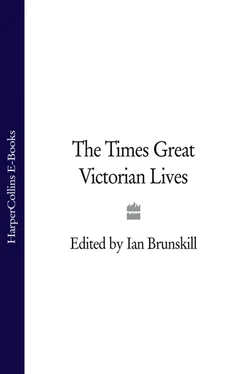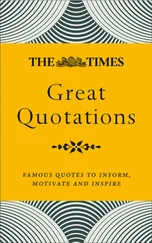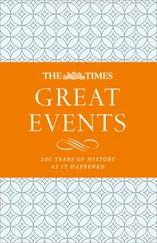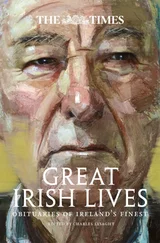The cause of science would meet with fewer enemies, its discoveries would command a more ready assent, were all its votaries imbued with the humility of Michael Faraday.
Faraday, born the son of an artisan near the Elephant and Castle in London, was yet another of the ‘Self Helpers’ so admired by Victorian social moralists. He was not only a first-rate scientist in his own right but also a pioneer populariser of science during a key period of progress in the subject. Faraday was a lucid and much appreciated lecturer at the Royal Insitution in Albemarle Street where, from January to April, weekly lectures and laboratory demonstrations were open to subscribers. He died in his grace and favour residence at Hampton Court. Being a devout member of the Sandemanian sect (founded in Scotland by John Glas) he was interred at Highgate Cemetery rather than being offered a tomb at Westminster Abbey.
CHARLES DICKENS
Novelist: ‘There was always a lesson beneath his mirth.’
9 JUNE 1870
WE FEEL SURE that a thrill of sorrow as well as of surprise will be felt by our readers when they hear of the sudden death of Mr. Charles Dickens. On Wednesday evening he was seized with a fit, at his residence, Gad’s Hill-place, Higham, near Rochester, between 6 and 7 o’clock, while at dinner. Mr. Stephen Steele, a surgeon at Strood, was sent for, and promptly arrived. He found Mr. Dickens in a very dangerous state, and remained with him for some hours. A physician was summoned from London yesterday morning, and Mr. Steele was also in attendance. Unfortunately, there was no improvement in the patient. In the afternoon Mr. Steele was again summoned from Strood. The reports in the after part of the day were discouraging, and shortly after 6 o’clock the great novelist expired.
There is no one, we are sure, of the men of the present day whose name will live longer in the memories of English readers, or will be more thoroughly identified with the English language, than the inimitable author of Pickwick. But the story of his life is soon told. The son of Mr. John Dickens, who held at one time a position in the Navy Pay Department, Charles Dickens was born at Portsmouth in the month of February, 1812. The duties of his father’s office obliged him frequently to change his residence, and much of the future novelist’s infancy was spent at Plymouth, Sheerness, Chatham, and other seaport towns. The European war, however, came to an end before he had completed his fourth year, and his father, finding his ‘occupation gone,’ retired on a pension and came to London, where he obtained employment as a Parliamentary reporter for one of the daily papers. It was at first intended that young Charles should be sent to an attorney’s office; but he had literary tastes, and eventually was permitted by his father to exchange the law for a post as one of the reporters on the staff of the True Sun, from which he subsequently transferred his services to the Morning Chronicle then under the late Mr. John Black, who accepted and inserted in the evening edition of his journal the first fruits of the pen of Charles Dickens – those ‘Sketches of English Life and Character’ which were afterwards reprinted and published in a collective form under the title of Sketches by Boz in 1836, and the following year.
These Sketches at once attracted notice, and the public looked with something more than curiosity for the time when the successful author should throw off his mask and proclaim himself to the world. To adopt the phrase of an epigram which appeared in the Carthusian,
‘Who the Dickens “Boz” could be
‘Puzzled many a learned elf;
‘But time unveiled the mystery,
‘And “Boz” appeared as Dickens’ self.’
Almost simultaneously with these Sketches appeared a comic opera from his pen, entitled The Village Coquettes.
The graphic power of describing the ordinary scenes of common life, more especially in their more ludicrous aspects, did not escape the notice of Messrs. Chapman and Hall, then of the Strand, but now of Piccadilly, and they accordingly requested ‘Boz’ to write for them a serial story in monthly parts; the result was the publication of the Posthumous Papers of the Pickwick Club. It is said that a portion of the rough outline of the work was the result of a suggestion thrown out by Mr. Hall, one of the firm above-mentioned; but be that as it may, the subject was treated by ‘Boz’ in a manner at once so easy, so graphic, and so natural, and yet with such a flow of genuine humour, that the author found himself raised almost at a single step to the highest pinnacle of literary fame. Illustrated at first by poor Seymour, and afterwards by Mr. Hablot K. Brown (‘Phiz’), the Pickwick Papers found an enormous sale from their first appearance, and Mr. Charles Dickens presented himself to the world as their author in 1838.
The great success of Pickwick naturally led to offers being made to Mr. Dickens by the London publishers; but the author wisely consulted his own reputation, and confined himself to the production of Nicholas Nickleby in a similar style and form. The work was written to expose in detail the cruelties which were practised upon orphans and other neglected children at small and cheap schools, where the sum charged for the board of hungry and growing lads, with everything included, ranges from 16 l . to 20 l . a year. Mr. Dickens tells us, in the preface to this book, as it stands republished in the collective edition of his works, that it was the result of a personal visit of inspection paid by himself to some nameless ‘Dotheboys’-hall’ amid the wolds of Yorkshire; and the reader who has carefully studied it will with difficulty be persuaded that Mr. Squeers and Mr. John Browdie are not taken from living examples. The work was published in 1839.
About the same time he commenced in the pages of Bentley’s Miscellany, of which he was the first editor, a tale of a very different cast. Oliver Twist lets the reader into the secrets of life as it was, and, perhaps, still is, to be found too often in workhouses and in the ‘slums’ of London. When finished it was republished as a novel in three volumes, and in that shape too enjoyed an extensive sale. The following year Mr. Dickens undertook the production of a collection of stories in weekly numbers. The series was entitled Master Humphrey’s Clock, and it contained, among other tales, those since republished under the names of The Old Curiosity Shop – famous for its touching episode of ‘Little Nell,’ – and of Barnaby Rudge, which carries the reader back to the days of the Gordon Riots.
The pen of Mr. Charles Dickens was henceforth almost incessantly at work. About the time of the publication of Master Humphrey’s Clock appeared his Memoirs of Joseph Grimaldi, the celebrated Clown, almost his only production which deals with the plain prose of facts, and with everyday life divested of all imagination. Though much interest attaches to the work, we shall not be suspected of any intention of depreciating the author’s reputation when we say that his imaginative powers rank far higher than his skill as a biographer. In fact, while Pickwick and Nickleby live, Grimaldi is forgotten. After completing Master Humphrey’s Clock Mr. Dickens visited America, where he was received with extraordinary honours. On his return, in 1842, he published the materials which he had collected in the United States under the title ‘American Notes for General Circulation.’ Many of its statements, however, were controverted by American pens in a book entitled Change for American Notes.
Читать дальше












